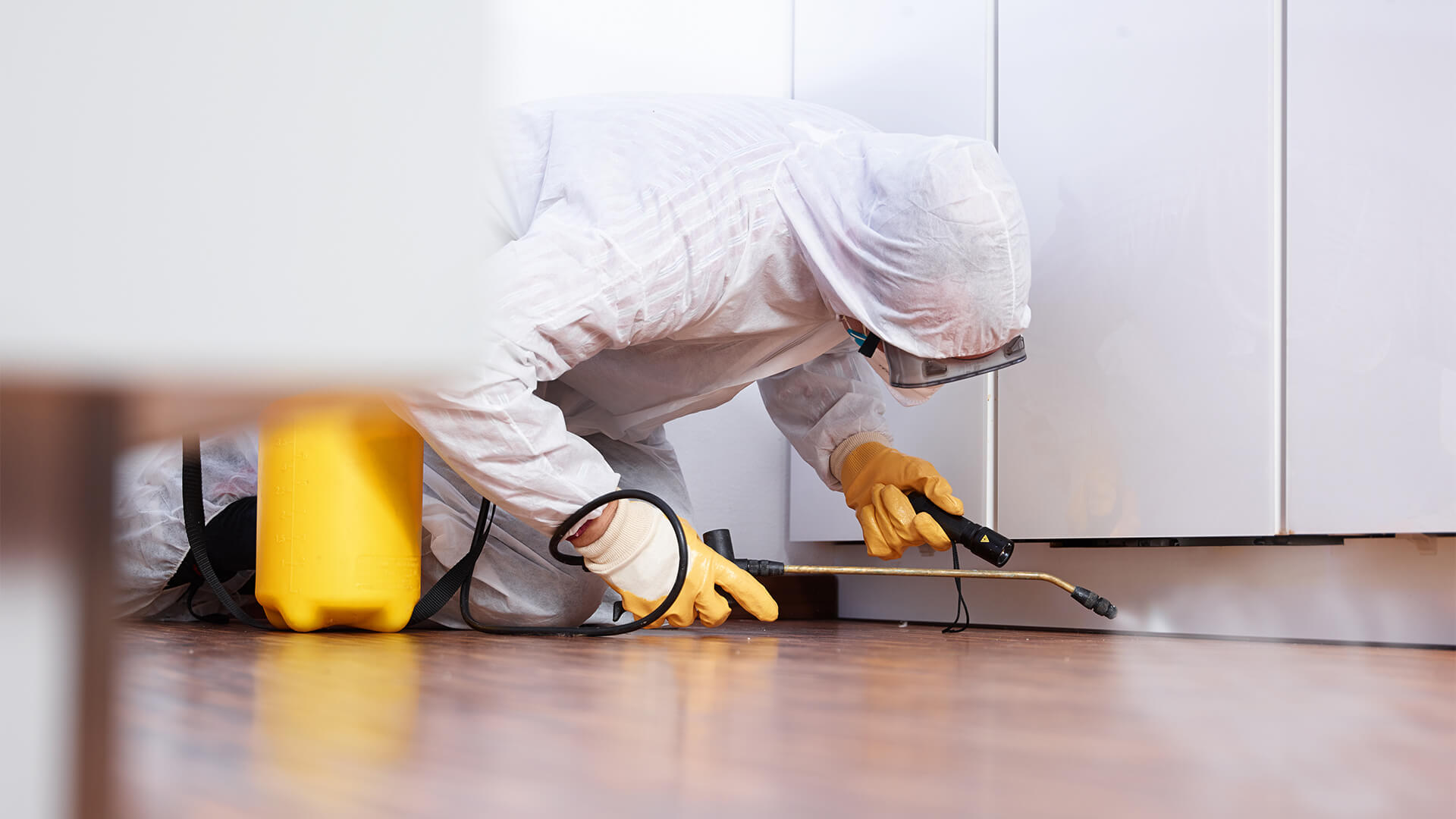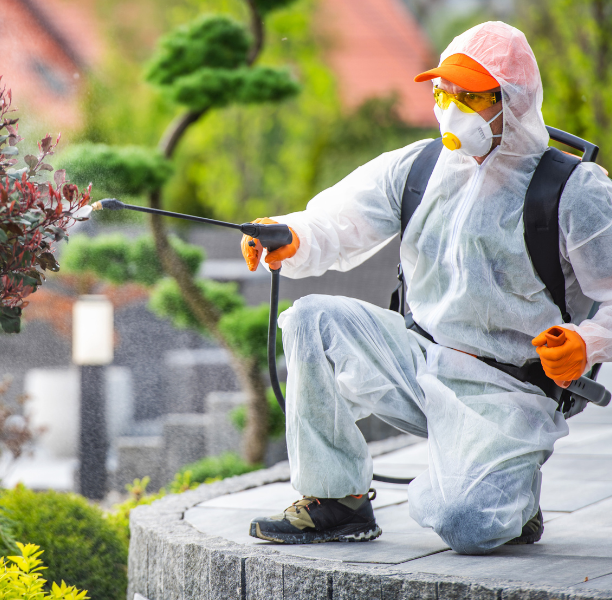Expert Pest Control Service Coquitlam: Protect Your Home from Invaders
Expert Pest Control Service Coquitlam: Protect Your Home from Invaders
Blog Article
Safe and Reliable Pest Control for Lasting Security
Reliable parasite administration requires a complex strategy that balances eco-friendly stability with the need for efficient pest reductions. The nuances of these approaches may not be instantly clear, triggering a more detailed exam of the techniques that can lead to sustainable bug control end results.
Comprehending Pest Control Techniques
Insect control encompasses a range of methods focused on managing and eradicating unwanted insects and rats that can endanger both health and wellness and residential property. Comprehending these methods is essential for reliable bug management.
The key classifications of insect control approaches consist of mechanical, biological, and chemical strategies. Mechanical techniques involve physical obstacles and traps to stop insect access and capture unwanted species. Making use of screens on home windows or employing sticky traps can dramatically decrease parasite populations without presenting hazardous materials - exterminator coquitlam.

Chemical pest control is commonly one of the most identified method, utilizing pesticides to get rid of bugs. These chemicals can be efficient yet have to be made use of with care to avoid adverse effects on non-target species and the atmosphere.
Benefits of Eco-Friendly Solutions
How can eco-friendly remedies change insect control practices? The fostering of environment-friendly pest control approaches offers many benefits, dramatically improving the effectiveness and safety and security of insect monitoring.

Another advantage is the positive influence on neighborhood biodiversity. Environmentally friendly options are designed to target particular bugs while maintaining beneficial insects and wild animals, advertising a well balanced ecosystem. This method lines up with the expanding customer need for lasting practices, enhancing the credibility of bug control providers.
Integrated Pest Management Methods
The application of green remedies normally leads to the adoption of Integrated Insect Management (IPM) techniques, which even more improve bug control effectiveness. IPM is an alternative technique that integrates several techniques to handle insect populations while reducing environmental impact. This approach stresses using organic, cultural, mechanical, and chemical controls, guaranteeing a sustainable and balanced method of pest management.
One fundamental element of IPM is the extensive evaluation of pest task and ecological conditions. By monitoring parasite populaces and determining their life cycles, experts can carry out targeted interventions that disrupt the bug's habitat or lifecycle, minimizing dependence on chemical pesticides. Furthermore, cultural techniques such as plant rotation and environment control can considerably lessen bug establishment and recreation.
One more critical part is using organic control agents, such as beneficial pests or microorganisms, which can normally suppress bug populations. When chemical applications are essential, IPM prioritizes making use of low-risk pesticides and uses them selectively, Discover More lessening exposure to non-target microorganisms and human beings.
Integrating IPM approaches not only boosts insect control performance but likewise advertises a safer ecological community, aligning with the expanding need for sustainable methods in parasite administration.
Safe Practices for Home Owners
Understanding the value of secure practices in bug control can empower house owners to properly manage bug concerns while safeguarding their health and wellness and the setting. Implementing non-toxic techniques and preventative measures is vital in minimizing exposure to dangerous chemicals.
Property owners ought to first assess their environment for conditions that bring in parasites, such as standing water, mess, and food waste. Regularly cleansing and securing entrance points can deter parasites from attacking the home. Using natural deterrents, such as vital oils or diatomaceous earth, can provide reliable options to chemical pesticides.
When chemical treatments are necessary, home owners need to go with products that are especially classified as risk-free for residential usage. It is vital to comply with application standards thoroughly to prevent too much exposure. Making use of targeted treatments in locations where bugs are identified, instead than blanket splashing, can significantly minimize chemical use.
Finally, maintaining open interaction with pest control experts is vital. House owners should ask about the security of items used and demand environmentally friendly alternatives whenever possible. By taking on these safe methods, homeowners can produce a much healthier living setting while efficiently taking care of pest problems.

Tips for Long-Term Security
Developing a parasite management method that stresses long-term protection can considerably boost the effectiveness of the safe methods formerly reviewed. To achieve this, property owners must apply normal inspections of their home, concentrating on concealed locations such as attic rooms, cellars, and crawl rooms. Early discovery of pest activity is essential in avoiding invasions from holding.
Furthermore, keeping a tidy atmosphere is crucial. This consists of correct food storage space, immediately cleansing spills, and consistently disposing of garbage. These practices reduce attractants that attract parasites right into the home. Furthermore, sealing access factors, such as fractures around doors and windows, can effectively block potential pest accessibility.
Landscape design should likewise be taken into consideration; maintaining plants cut and preserving a distance between plant life and the home lessens hiding spots for pests. Making use of natural deterrents, such as crucial oils or diatomaceous planet, can additionally inhibit problems without resorting to harsh chemicals.
Finally, teaming up with a professional insect control solution for regular examinations can provide an extra layer of protection. These experts can use tailored suggestions and advanced Go Here treatments, ensuring that your home stays safeguarded versus bugs in the long term.
Final Thought
To conclude, reputable and secure insect control requires a diverse strategy that stresses environmentally friendly methods and integrated bug monitoring. By executing natural deterrents, conducting routine examinations, and maintaining correct sanitation, home owners can considerably minimize pest populations while protecting valuable pests and the setting. Collaboration with professional parasite control solutions boosts the efficiency of these approaches, making certain customized services that offer enduring protection and satisfaction versus future infestations.
Reliable parasite administration needs a complex technique that balances eco-friendly integrity with the requirement for reliable parasite reductions. The fostering of environment-friendly parasite control approaches offers various benefits, dramatically improving the effectiveness and safety and security of pest monitoring.The implementation of eco-friendly options naturally leads to the fostering of Integrated Bug Monitoring (IPM) methods, which further enhance bug control check out this site effectiveness. exterminator coquitlam. By keeping an eye on pest populaces and determining their life cycles, experts can implement targeted treatments that interfere with the insect's habitat or lifecycle, lowering dependence on chemical pesticides.In conclusion, trustworthy and risk-free pest control calls for a diverse method that stresses environmentally friendly techniques and incorporated parasite management
Report this page